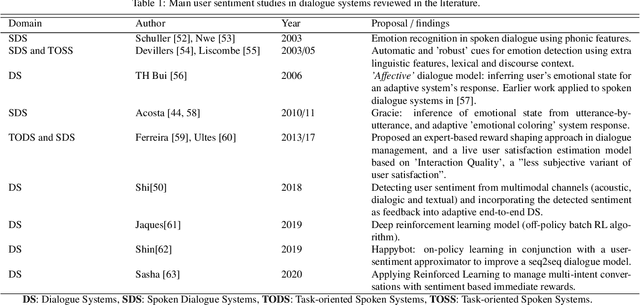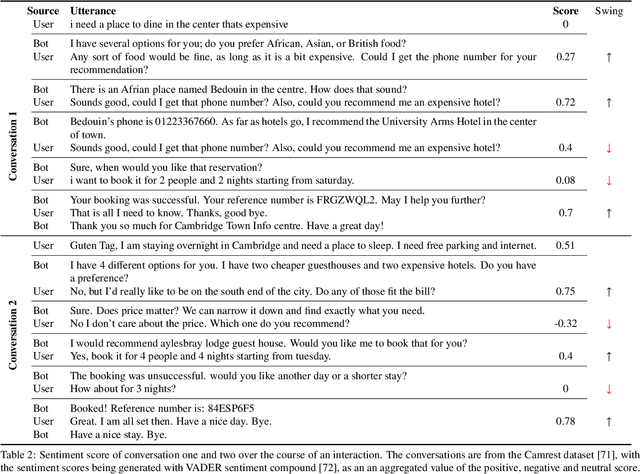Ryan Fellows
Task-oriented Dialogue Systems: performance vs. quality-optima, a review
Dec 21, 2021



Abstract:Task-oriented dialogue systems (TODS) are continuing to rise in popularity as various industries find ways to effectively harness their capabilities, saving both time and money. However, even state-of-the-art TODS are not yet reaching their full potential. TODS typically have a primary design focus on completing the task at hand, so the metric of task-resolution should take priority. Other conversational quality attributes that may point to the success, or otherwise, of the dialogue, may be ignored. This can cause interactions between human and dialogue system that leave the user dissatisfied or frustrated. This paper explores the literature on evaluative frameworks of dialogue systems and the role of conversational quality attributes in dialogue systems, looking at if, how, and where they are utilised, and examining their correlation with the performance of the dialogue system.
A reinforcement learning algorithm for building collaboration in multi-agent systems
Apr 05, 2018



Abstract:This paper presents a proof-of concept study for demonstrating the viability of building collaboration among multiple agents through standard Q learning algorithm embedded in particle swarm optimisation. Collaboration is formulated to be achieved among the agents via some sort competition, where the agents are expected to balance their action in such a way that none of them drifts away of the team and none intervene any fellow neighbours territory. Particles are devised with Q learning algorithm for self training to learn how to act as members of a swarm and how to produce collaborative/collective behaviours. The produced results are supportive to the algorithmic structures suggesting that a substantive collaboration can be build via proposed learning algorithm.
 Add to Chrome
Add to Chrome Add to Firefox
Add to Firefox Add to Edge
Add to Edge